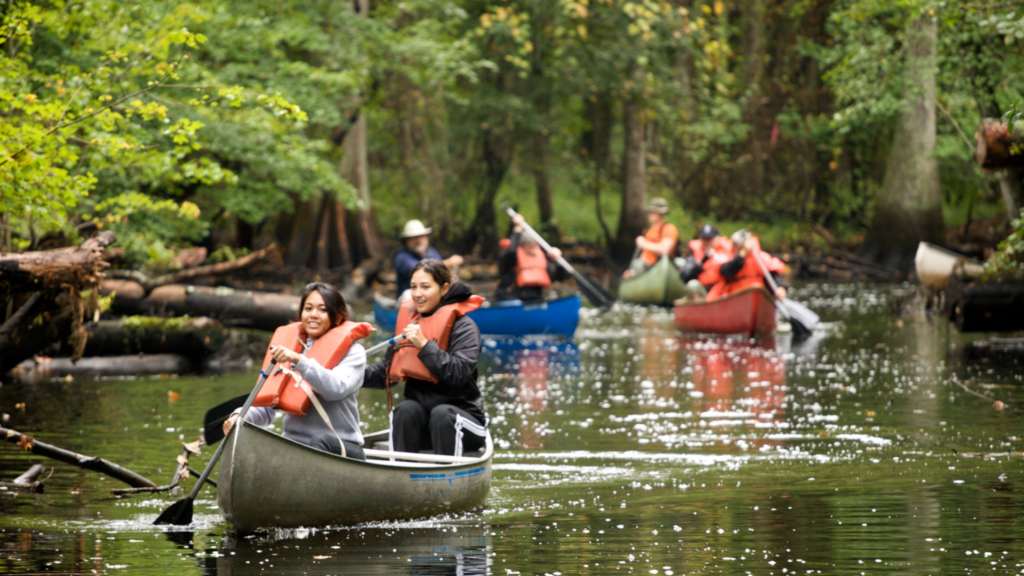 In a previous post, I talked about how all of the baptized have a vocation to accomplish the mission of the church. Our number-one job as RCIA team members is to form our seekers to be able to accomplish that mission.
In a previous post, I talked about how all of the baptized have a vocation to accomplish the mission of the church. Our number-one job as RCIA team members is to form our seekers to be able to accomplish that mission.
The first step in the process of formation is to develop in the seekers a zeal that is equal to and even greater than the first apostles. That seems like an almost impossible task, but it is nevertheless the challenge given to us by the Second Vatican Council:
Sacred Scripture clearly shows how spontaneous and fruitful such activity was at the very beginning of the Church (cf. Acts 11:19-21; 18:26; Rom. 16:1-16; Phil. 4:3).
Our own times require of the laity no less zeal: in fact, modern conditions demand that their apostolate be broadened and intensified. (Decree on the Apostolate of the Laity, 1; emphasis added)
So how do we develop such zeal in both the seekers and ourselves? Here is a six-step spiritual formation plan that all of us can implement.
1. Prayer
We engage in the apostolic work of the church by the power of the Holy Spirit. The Spirit is acting powerfully right now and at every moment in every human heart. To access that spiritual power, all we have to do is pay attention. Regular, consistent prayer is the key to developing the zeal that our mission demands of us.
2. Liturgy
Our preeminent form of prayer is liturgy. We are first of all “consecrated for the royal priesthood” through the liturgy of our baptism. And then our gifts to work as royal priests are nourished through the sacraments, especially the Eucharist (see Decree on the Apostolate of the Laity, 3).
3. Faith, Hope, and Charity
These three virtues are gifts that are given to each of us by the Holy Spirit. Often, however, these gifts are neglected or unused. Through our personal and communal prayer, we should always be seeking to become more faithful, hopeful, and loving. These gifts, however, won’t be effective if we confine them to our prayer times. Every day, we should look for ways to exercise our faith, increase our hope, and practice being more loving. We should be especially mindful of being more loving. At this moment in history, there is an excessive amount of animosity and division. Simply by being a bit more charitable toward those we find difficult to love, we will increase our own zeal for the mission and the zeal of those who witness our charitableness (see Decree on the Apostolate of the Laity, 3).
4. Discernment
In addition to faith, hope, and charity, the Holy Spirit gives each of us unique gifts, particularly suited to our personal roles in the apostolic mission of the church. The Second Vatican Council instructs about these special gifts that “there arise for each believer the right and duty to use them in the Church and in the world for the good of men and the building up of the Church, in the freedom of the Holy Spirit who ‘breathes where He wills’ [John 3:8]” (Decree on the Apostolate of the Laity, 3). As RCIA team members, we are obligated to know what our unique gifts are and to use them especially to help the seekers discern their own unique gifts.
5. Abide in Christ
To abide means to live with or follow. In order to abide in Christ, we must do those things already mentioned. In addition, we must also immerse ourselves in the Word of God so that we can “always and everywhere recognize God in Whom ‘we live, and move, and have our being’ (Acts 17:28), seek His will in every event, see Christ in everyone whether he be a relative or a stranger, and make correct judgments about the true meaning and value of temporal things both in themselves and in their relation to man’s final goal” (Decree on the Apostolate of the Laity, 3). If we abide in Christ, even when we experience the trials of life, we will continue of have hope and grow in holiness.
6. Don’t gossip
Pope Francis has spoken about this many times, and he may have been inspired by this teaching from the Second Vatican Council. The council instructs: “Impelled by divine charity, they do good to all men, especially to those of the household of the faith (cf. Gal. 6:10), laying aside ‘all malice and all deceit and pretense, and envy, and all slander’ (1 Peter 2:1), and thereby they draw men to Christ” (Decree on the Apostolate of the Laity, 3). All of us fail at this. The goal we should set for ourselves is that by the power of the Holy Spirit our eyes will be opened to the depth of our failure and that we will resolve to do better.
This is our spiritual formation plan. Just as the clergy have a spiritual formation plan, so do we, as members of the royal priesthood. If we put this plan in place, first of all for ourselves and then for our seekers, the goal of developing a zeal even greater than that of the first apostles does not seem so far-fetched.
Your Turn
How have you helped your seekers discern their spiritual formation plan? What have they emphasized in this process? Share your thoughts in the comments below.

















